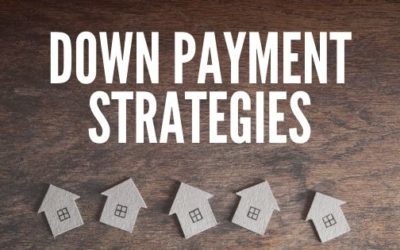Mortgage insurance is super important – Here is why.
If you use an FHA or USDA mortgage or you put less than 20% down on a conventional loan, you are required to purchase mortgage insurance. However, what does mortgage insurance do, and why is it important? Let’s take a look.
Mortgage insurance makes it possible to avoid needing a down payment but still helps you qualify for a loan. It also helps protect your lender in case you default and cannot make the mortgage payments.
If you are using an FHA or USDA loan, you have to carry mortgage insurance – no matter how much you put down. VA loans require a “funding fee” instead of mortgage insurance, and that amount is generally specific to each purchase.
So how does mortgage insurance work?
Even though you pay for it, mortgage insurance covers your lender. A portion of your monthly dues is paid to the principle of your loan in case you ever stop making payments.
Mortgage insurance is different from mortgage life insurance, which helps to pay off the remaining balance if the borrower dies.
Private mortgage insurance (PMI) is often required by a conventional lender if your down payment is less than 20%. The cost of PMI will vary depending on your credit score, debt to income ratio, and the size of the loan. Most often, PMI is included in your mortgage payment.
A mortgage insurance premium (MIP) is paid in monthly installments for the life of an FHA loan if you put down less than 10% of the total purchase price of your home. If you put down more than 10% and still use an FHA loan, you are required to pay MIP for 11 years. FHA loans are issued by the Federal Housing Administration and have much easier credit qualifications than conventional mortgages. FHA loans require both MIP and an annual premium to be paid, no matter how much you put down.
A USDA loan is issued by the US Department of Agriculture and offer a zero-down payment option for home loans. This is for both rural and suburban areas. Some USDA loans charge mortgage insurance as an upfront guarantee fee paid once and a fee that is paid annually for the entire life of the loan. The fees are assessed and evaluated yearly by the federal government and can change over time.
VA loans do not require down payments and have low-interest rates for service members, no matter if they are active or retired. VA loans can also cover some National Guard service members as well as reservists. There is no mortgage insurance fee, but borrowers will have to pay a funding fee. This fee is determined by the dollar amount you are borrowing, and whether or not you are putting any money down.
Mortgage insurance can be avoided if you’re able to put down 20%, but since that’s not accessible for most home buyers, it’s important that you factor in this added insurance into the cost of your



